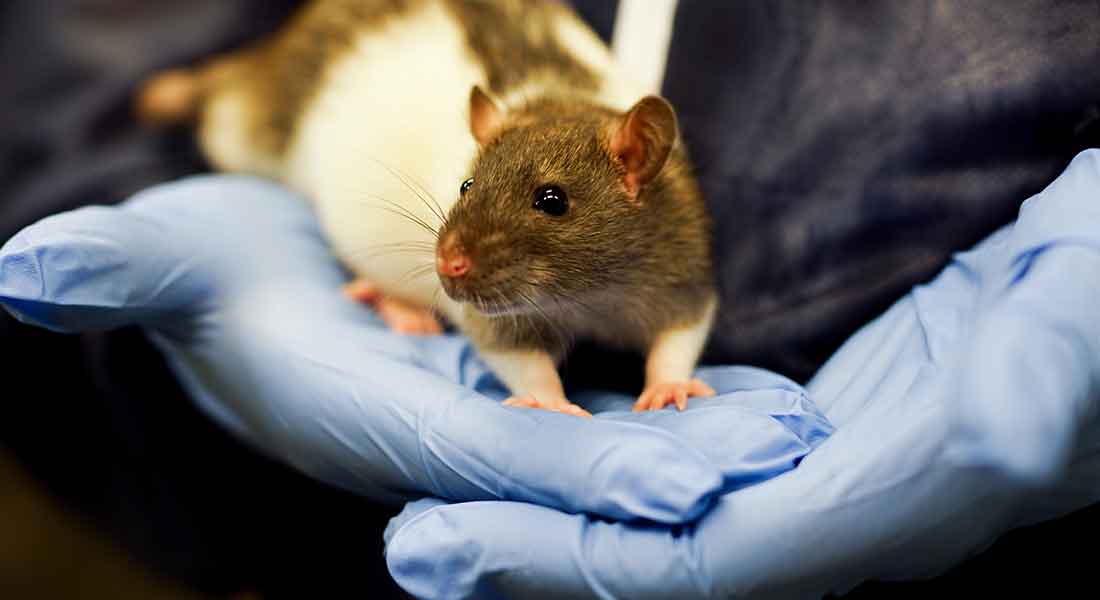Non-clinical Safety and Toxicology
Non-clinical safety assessment is an essential part of modern drug development. Learn about the regulatory requirements for non-clinical safety studies in vivo and in vitro,

Non-clinical safety assessment of a potential pharmaceutical represents an essential part of the drug development process. The high attrition rate seen late in development programmes has caused an intensification and expansion of the field of safety science, towards a much more integrated view of safety from early discovery to post-marketing safety monitoring.
Exercises are based on case stories where you will be presented with real toxicological data in a stepwise manner and asked to formulate qualified conclusions at each step. This enables you to solve issues that you would encounter in your daily work life and integrate various safety aspects in the overall assessment for selection of drug candidates. The course setup will allow you to develop your knowledge in close collaboration with fellow students and leading scientists from the university, pharmaceutical industry, and health authorities.
The course concerns investigations used in the non-clinical safety assessment of new drugs. These include evaluation of general toxicity and safety pharmacology, genotoxicity, carcinogenicity, and reproductive toxicity but also aspects of ADME (absorption, distribution, metabolism, excretion) and toxicokinetics in relevant species.
The objective of the course is to introduce participants to non-clinical safety assessment and to give participants an insight in the requirements and the conclusions to be drawn from the results of non-clinical safety studies conducted in vivo as well as in vitro.
Upon completion of the course, you will be able to:
- Provide information on regulatory requirements for studies used in non-clinical safety assessment
- Describe the major organ systems to be examined in non-clinical safety assessment
- Outline special conditions for assessment of toxicological aspects of biopharmaceuticals.
- Understand non-clinical safety assessment in vivo as well as in vitro
- Identify and argument for relevant animal species and organs used in safety studies
- Design in vitro genotoxicity tests
- Integrate various safety aspects in the overall risk assessment for selection of drug candidates.
Professionals in need of interdisciplinary overview
The course is for professionals in the pharmaceutical industry who needs a basic understanding of non-clinical safety assessment. You will gain insight in the requirements and the conclusions to be drawn from the results of non-clinical safety studies conducted in vivo as well as in vitro.
Participants must
- Hold a relevant bachelor degree or equivalent
- Have a minimum 2 years of relevant job experience in drug development
- Be proficient in English
Find detailed information about the admission criteria.
Course coordinator
Anders Bach
Lecturers
Thomas Mow, Novo Nordisk
Helle Northeved, H. Lundbeck
Klaus Rytved, LEO pharma
Kim Kristensen, Novo Nordisk
Mette Lund Pedersen, Orphazyme
Annemette Thougaard, H. Lundbeck
Stine Bartelt, Novo Nordisk
Sophia Gry Moesgaard, Novo Nordisk
Morten Laursen, Novo Nordisk
Jørgen Schützsack, LEO Pharma
Graham Bailey, J&J
Kristin Laura Abel, Ascendis Pharma
Harrie Boonen, Lundbeck
Mikael Elander, Zealand Pharma
Louise F. S. Bang-Lauritsen, Danish Medicines Agency
Beatriz Silva Lima, Lisbon University, PT
Carsten Baun Senholt, Saxocon
The list of lecturers may be subject to change.
The course was highly relevant because of the guest speakers from the industry and the real-life cases that were presented to us. The course achieved a great balance between theories on guidelines and insight in practicalities.
The course has increased my awareness of what authorities need in order to evaluate new drug applications and taught me how to use the guidelines more efficiently.
This course is offered as an compulsory course in the Master of Industrial Drug Development programme.
Priority is given to students enrolled on Master of Industrial Drug Development. Once the enrolled students have been admitted to the course, the remaining seats are distributed on a first-come, first-served basis.
Course details
| Duration: | 5 days on campus |
| Dates: | 8-12 April 2024 |
| Frequency | Only available every second year |
| Place: | University of Copenhagen, Copenhagen, Denmark |
| Course fee: | EU/EEA citizens: 12,050 DKK Non-EU/EEA citizens: 13,825 DKK The fee includes lunch/coffee. |
| Level and credit: | Master course; 2,5 ECTS |
| Examination date: | Please consult the exam schedule |
| Application deadline: | Deadline extended till 6 March 2024 |
| Admission: | To be admitted, you must meet the admission criteria for Master of Industrial Drug Development |
Course dates and application deadlines are announced via the programme newsletter.
Download course curriculum
